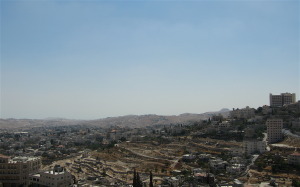By: David P. Griscom
While most of the nation’s attention has been directed toward the US offensive against ISIS, another conflict that has been in the news cycle this summer has undergone a major development. An agreement was reached on September 24th between Palestinian groups and Israel to hold talks at the end of October. This comes after a ceasefire agreement orchestrated by Egypt at the end of last August. These talks have the potential to have huge implications for the region, and may include benefits and advantages for both sides.
For Israel the delaying of the talks is encouraging because it distances the international community from the violent facts of the summer conflict that triggered this crisis. A report from the United Nations has tallied the death toll of Palestinians at 2,131 during the conflict. For Israel the longer it takes for these negotiations to take place the better, as most of the worlds attention has shifted to the ISIS threat, enabling them to continue their blockade of Gaza that continues to cripple Palestinians. In Israel’s case, time does heal all wounds.
For Palestine pushing the talks back was a major risk as they suffer from the short attention span of the international community. However, this delay allows the Palestinians to have the opportunity to organize themselves politically like never before. Both Fatah and Hamas were represented in the negotiations with Israel but they have been opposed to each other in the past. Fatah, the larger organization residing primarily in the West Bank, is a secular organization which comprises the Palestinian Authority, while Hamas operates primarily in Gaza and follows an Islamic ideology. Going forward, these two groups who compete for legitimacy in the region will have to represent a united Palestine for any opportunity to create new borders to arise.
There are talks occurring in Egypt as of the writing of this article between Hamas and Fatah to attempt to form a unity government in the region. The divisions between these groups have lead not only to a divided Palestinian people but also general civic chaos in the operation of simple government functions, notably a history of unpaid public employees. This current ceasefire and delay in peace negotiations will allow for the creation of one entity to represent the Palestinian people going forward.
While other global crises have come and gone the Palestinian-Israeli conflict has lasted through multiple outbreaks of violence. While the issue may be overshadowed by US airstrikes against ISIS, the legacy of the Israeli-Palestinian conflict has implications that will be long lasting, even generational. Through the recent killing of two Palestinians who were suspected of the murder of three Israeli teenagers, and the recent Palestinian protests of the blockade, this conflict will continue whether or not the international gaze has been averted.
Photo Credit: David Poe, Flickr Commons

